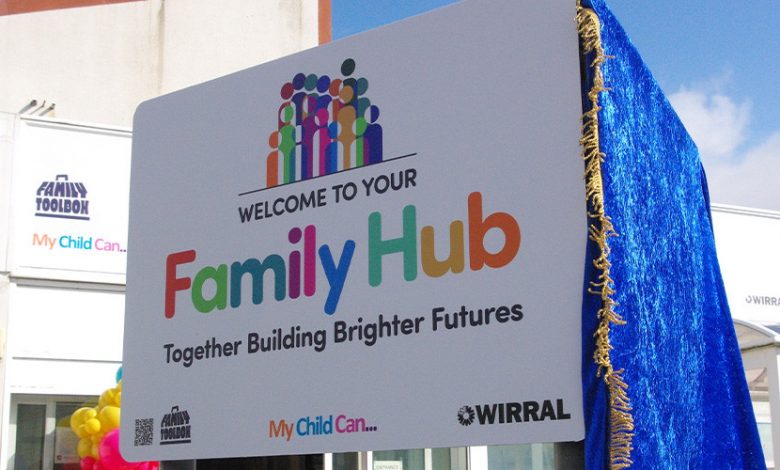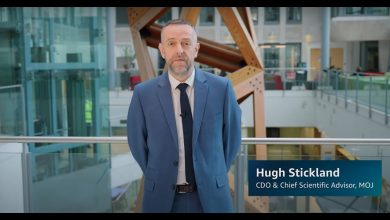Liverpool City Council Harnesses Azure Ai Data Science to Protect Vulnerable Families
Supporting Families is committed to strong multi-agency local partnerships in every area with mature local and national data systems.

 The UK Government’s Supporting Families Programme, originally launched as the Troubled Families Programme in 2012 and rebranded in 2021, is a national initiative aimed at supporting families with multiple, complex disadvantages to improve their life outcomes.
The UK Government’s Supporting Families Programme, originally launched as the Troubled Families Programme in 2012 and rebranded in 2021, is a national initiative aimed at supporting families with multiple, complex disadvantages to improve their life outcomes.
Administered by the Department for Levelling Up in collaboration with the Department for Education it seeks to address interconnected issues such as unemployment, poor school attendance, mental and physical health problems, domestic abuse, and involvement in crime or anti-social behavior.
The goal is driving system change so that every area has joined up, efficient local services which are able to identify families in need and provide the right support at the right time.
Whole System Services
The program demonstrates the critical need for government services to operate via a ‘whole system’ approach, one that understands the complex dynamics affecting citizens that span multiple service areas like social care, health and education. It operates on a “whole-family” approach, assigning families a dedicated keyworker to coordinate support across various agencies.
Councils are required to convene and coordinate partnerships with schools, police, housing services, healthcare providers, and voluntary organizations to deliver joined-up support. This includes breaking down silos and ensuring families only need to tell their story once.
Its primary objectives include:
- Improving Outcomes: Helping families achieve stability and resilience by tackling multiple problems simultaneously, such as securing employment, ensuring children attend school, and reducing criminal behavior.
- System Transformation: Encouraging local authorities and partners to integrate services, share data, and embed early help systems to prevent escalation to costly statutory interventions like children entering care.
- Funding Model: Local authorities receive upfront funding to deliver services, supplemented by a payment-by-results mechanism (£800 per family achieving successful outcomes, up to an agreed target). Total investment from 2022 to 2025 is £695 million, with an additional £200 million uplift announced in 2021 to support up to 300,000 families.
The programme emphasizes early intervention to prevent health crises, obliging healthcare providers to prioritize upstream support—e.g., addressing parental mental health to prevent child neglect—over reactive treatments.
Healthcare providers, including NHS trusts and clinical commissioning groups (now integrated care systems), are expected to work closely with local authorities to address health-related barriers faced by families, such as mental health issues, substance misuse, and chronic conditions. The 2014 “national health offer” developed with the Department of Health and Public Health England underscored this partnership, providing guidance for health professionals.
Data Sharing System Maturity
Health services are encouraged to integrate with early help systems, ensuring families receive timely support. For instance, health visitors or mental health practitioners might collaborate with keyworkers to deliver holistic care, reducing the need for families to navigate multiple services independently.
Healthcare entities must contribute to multi-agency data systems, sharing person-level data (e.g., on health conditions or domestic abuse) to identify eligible families and tailor interventions. This aligns with the programme’s push for mature data governance across partners.
Local governments must invest in data infrastructure to track family needs and outcomes, achieving milestones like strategic data governance and access to real-time data feeds (e.g., school attendance, youth offending, health metrics). Annual self-assessments against the Early Help System Guide are mandatory.
GovCloud Solutions
As they describe in this detailed case study Sentinel Partners leverages the powerful Ai and data management capabilities of Azure to meet the complex needs of Local Government. For Liverpool City Council they helped meet the challenging requirements of implementing Supporting Families.
Achieving this required Sentinel to address functionality such as automated data integration and management to help identify and support vulnerable families, plan a research project based upon a huge, unified dataset and apply the latest Microsoft AI Machine Learning technologies to gain an understanding and risk measure of the degree of vulnerabilities for a person.
The platform collected and integrated data from 35 core data feeds into a fully matched and profiled, unified data set of residents and families across the city, and was able to identify how many families lived in the city and how many of those families needed immediate support, providing a new target cohort that was 193% larger than was previously known.
Data is matched and integrated from all available sources to provide up-to-date, accurate, and complete records of individuals and family units. Data sharing features of the platform facilitate collaborative and proactive working. This helps teams deliver the interventions that families need.
Master Data Management
A specific dashboard for Early Help was implemented, identifying over 4000 families in need of early intervention. This initial iteration of the Data Integration Platform was the enabler for real data driven transformation. The Supporting Families and Early Help teams could immediately target their efforts more effectively based on a single, most trusted, version of the truth.
The objective was to show how Liverpool’s unified data asset could be used to drive an early intervention strategy and support vulnerable people before they reach a point of crisis. Sentinel produced a Empowering MDM With Efficient Data Matching in the Cloud White Paper with the Liverpool teams that would be used as the basis for a business case across the council and key partners to obtain funding for a full implementation of this technology to drive proactive support services.
This uses Python and Java to implement the solution and integrate it into their Sentinel Data Platform. The solution runs in Microsoft Azure and utilises Azure Synapse Analytics, and an Azure Data Lake to read and write data files where needed.
Conclusion
Sentinel also addressed a number of related programs for Liverpool City Council, including the SAFE Taskforce and Vulnerable Pupils initiative, a research project to identify future vulnerability of Domestic Abuse and a Covid-19 Rapid Response project, to support the UKs first mass test-and-trace programme which took place across the Liverpool region in November 2020.
What is common to this suite of projects and to all Local Government programs is the need to aggregate data from multiple different agencies, spanning Policing, Healthcare, Socialcare and many others, into a singularity of information about citizens, that can then be understood not only historically, but also utilized to forecast and identify possible future events that can then empower multi-agency teams to act together collaboratively, and proactively.
Built upon and leveraging the powerful Azure AI and data management capabilities, the Sentinel Data Platform meets this need for Local Governments, creating a complete single view of data that then can be used to form groups of complete and accurate data.




